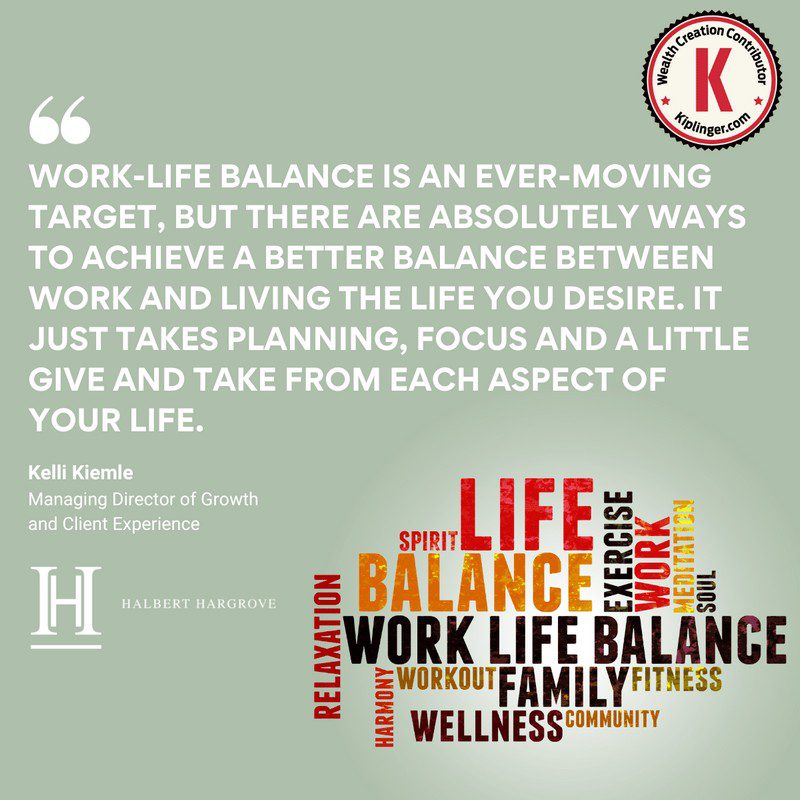By Kelli Kiemle, AIF®, Managing Director of Growth and Client Experience as featured in Kiplinger
Is work-life balance attainable, or is it an unrealistic goal to set?
According to the Forbes Health-Ipsos Monthly Health Tracker, 90% of employed respondents noted that “work-life balance is an important aspect of their job.”
From my own experience as a C-suite executive and mom of two, work-life balance is an ever-moving target, but there are absolutely ways to achieve a better balance between work and living the life you desire. It just takes planning, focus and a little give and take from each aspect of your life.
As we start planning our goals for next year and surviving this busy and sometimes expensive holiday season, let’s use some financial tools that should lessen the stress for 2024.
Plan ahead and automate
The easiest way to save without thinking is to automate your savings and bill payments. I’m not saying set it and forget it, but set up your regular bills — such as rent/mortgage, car payment, utilities, etc., to pay automatically. It’s important to still review what’s going out and your month-over-month cost. The same goes with establishing savings goals: If your employer offers a 401(k), make sure you participate by setting a paycheck dollar amount or a percentage of earnings. Or if they don’t, setting up automatic deposits into an IRA or Roth IRA. Want to help your kids with future education expenses? Use the same method with a 529 plan, or even a separate high-yield savings account earmarked for long-term goals.
Having a plan for what will happen with your money when it hits your account takes the burden off of monitoring it daily or weekly.
It’s still a good habit to set a monthly “financial review” to ensure everything still makes sense for your current situation, especially if you have a significant other.
If you’re not a fan of financial automation, set tasks on your calendar for when bills are due so there is no burden to remember all of those little details.
Make room in your brain for more important things. Removing these unnecessary stressors is what helps contribute to a healthier well-being and life balance.


